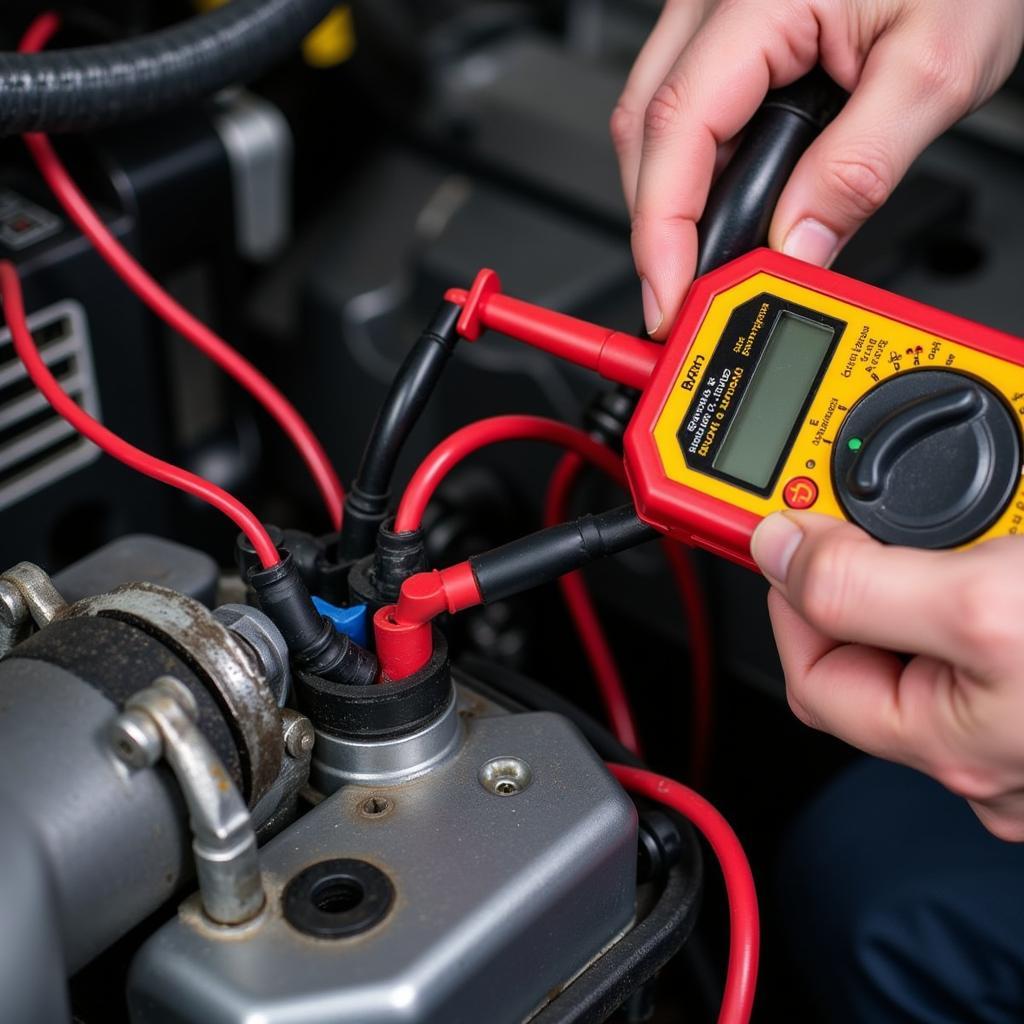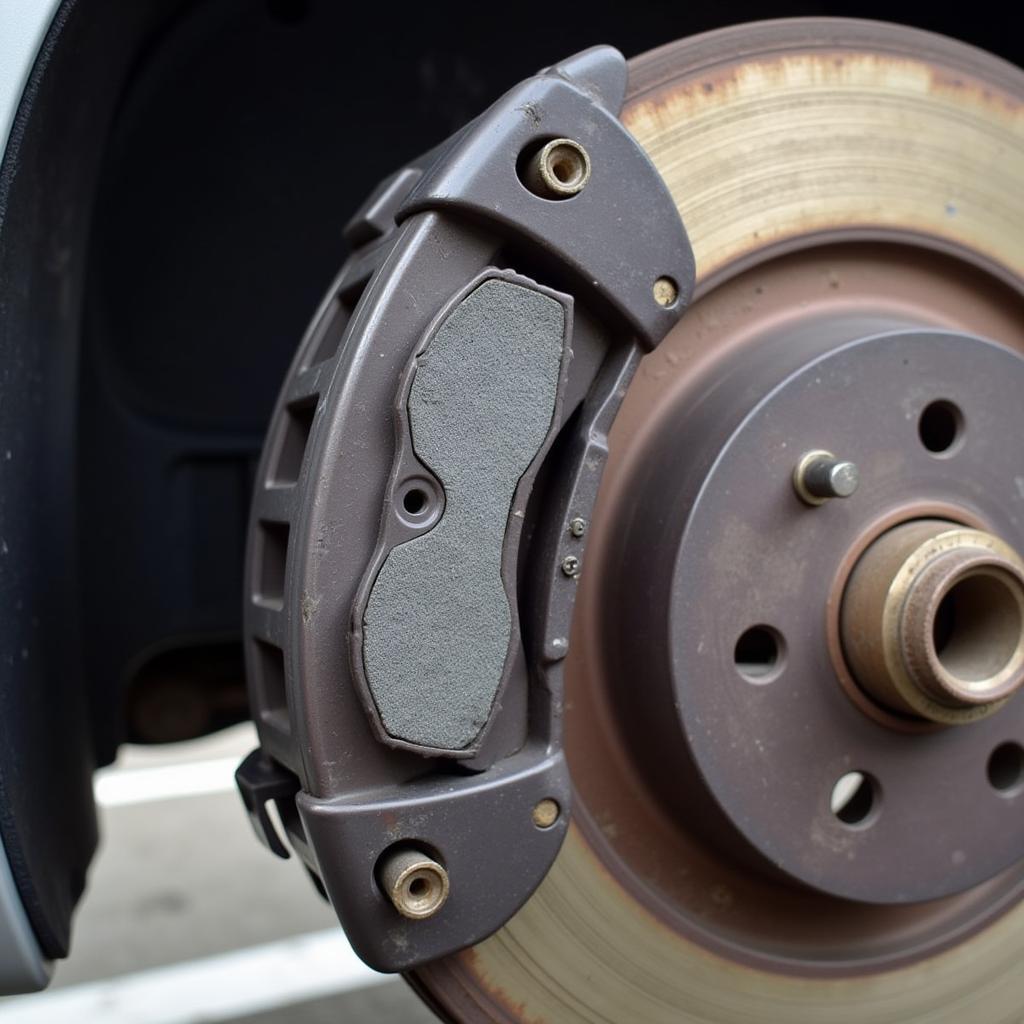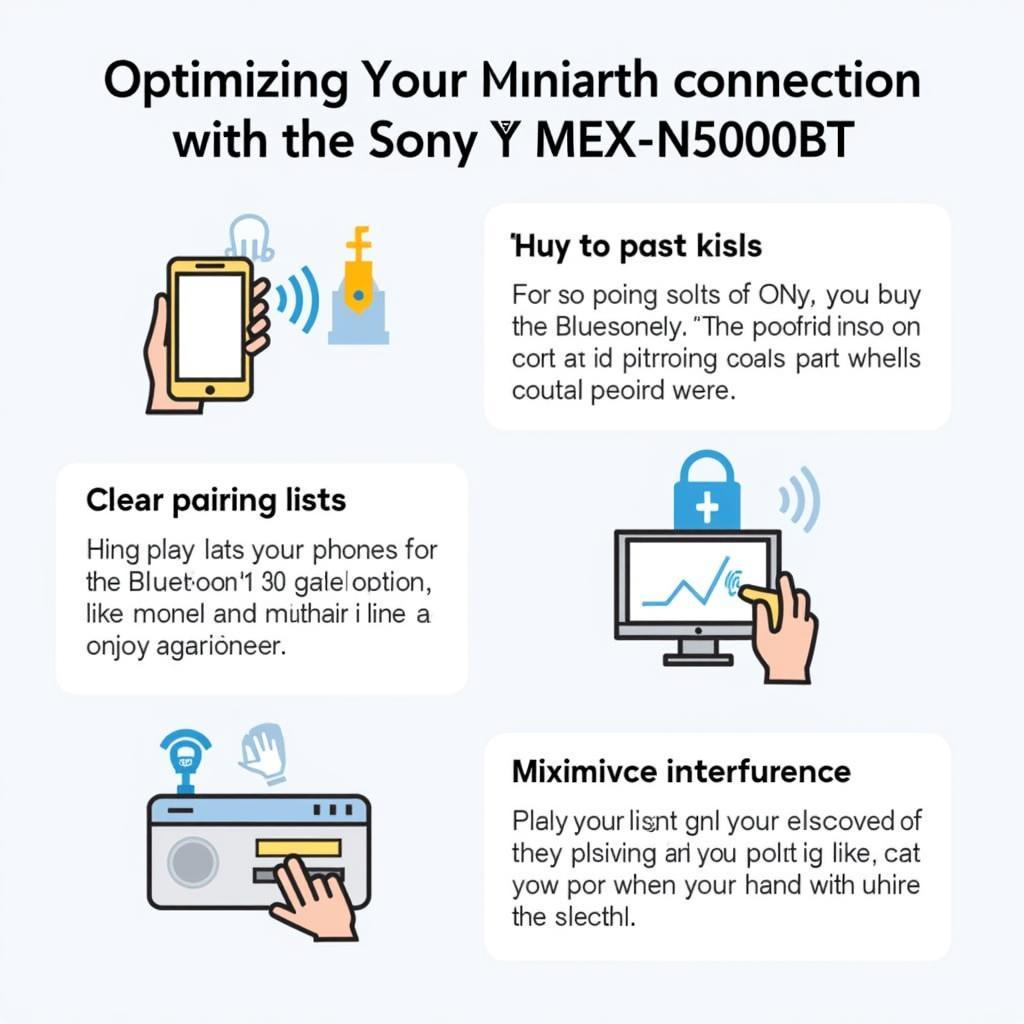You changed your car battery, expecting a roaring start, but instead, you’re met with silence. This is a surprisingly common issue, and you’re not alone. This guide will help you diagnose why your car won’t start after changing the battery and get you back on the road.
Common Reasons Why Your Car Won’t Start After a Battery Change
Several factors can cause a no-start condition even after a new battery installation. These range from simple oversights to more complex electrical issues. Let’s explore some of the most frequent culprits.
Loose or Corroded Battery Terminals
One of the most common reasons for a car not starting after a battery change is loose or corroded battery terminals. Even a slightly loose connection can prevent sufficient power from reaching the starter. Corrosion can also disrupt the flow of electricity.
Faulty Starter Motor
If your battery connections are secure and clean, the starter motor might be the problem. A faulty starter can prevent the engine from cranking over, even with a brand new battery.
Blown Fuses or Relays
Changing a battery can sometimes cause a surge that blows a fuse or relay related to the starting system. Check your car’s owner’s manual to locate the fuses and relays associated with the starting circuit.
Wiring Issues
Damaged or loose wiring can interrupt the flow of power from the battery to the starter. Inspect the wiring connected to the battery, starter, and related components for any signs of damage or loose connections.
Security System Malfunction
Sometimes, the car’s security system can prevent the engine from starting after a battery change. This can occur if the system interprets the disconnection and reconnection of the battery as a theft attempt. Consult your owner’s manual for instructions on how to reset the security system.
Troubleshooting Steps: Changed Battery and Car Won’t Start
Here’s a step-by-step guide on how to troubleshoot the “changed battery and car won’t start” issue:
- Check Battery Terminals: Ensure the terminals are clean, tight, and free of corrosion. Use a wire brush to clean any corrosion. Tighten the terminal clamps securely.
- Inspect Fuses and Relays: Locate the fuses and relays related to the starting system. Check for any blown fuses and replace them if necessary.
- Test the Starter: If the terminals and fuses are fine, the starter might be the issue. You can test the starter by having someone turn the key while you tap on the starter motor with a hammer. If the car starts, the starter is likely faulty.
- Check Wiring: Inspect the wiring connected to the battery and starter for any damage or loose connections. Repair or replace any damaged wires.
- Reset Security System: Consult your car’s owner’s manual for instructions on resetting the security system. This can sometimes resolve the issue.
“A common oversight is failing to fully tighten the battery terminals,” states automotive electrical expert, John Miller, ASE Certified Master Technician. “This can lead to a no-start situation even with a new battery.”
 Checking Car Wiring After Battery Replacement for Starting Issues
Checking Car Wiring After Battery Replacement for Starting Issues
Conclusion: Getting Your Car Started
Experiencing a no-start after changing your battery can be frustrating, but by following the troubleshooting steps outlined in this guide, you can pinpoint the culprit and get your car back on the road. If you’ve tried all these steps and your car still won’t start, it’s best to consult a qualified mechanic for further diagnosis and repair. Don’t forget to check for loose or corroded terminals, a simple fix that often solves the “changed battery and car won’t start” problem. Sometimes, upgrading to a hands free car radio with gps and bluetooth can enhance your driving experience. You may also want to find a delphi wiring diagram car radio or learn about are car radio bluetooth good if you are exploring options.
FAQ
- Can a bad alternator prevent a car from starting even with a new battery? Yes, a faulty alternator can prevent the new battery from charging, eventually leading to a no-start condition.
- Do I need to disconnect the battery when changing the terminals? Yes, always disconnect the negative terminal first, then the positive, for safety.
- How long should a car battery last? Typically, car batteries last between 3 to 5 years, depending on usage and climate.
- Could a bad ground connection prevent the car from starting? Absolutely. A poor ground connection can interrupt the electrical circuit and prevent the car from starting.
- Should I replace the battery cables when replacing the battery? If the cables are corroded or damaged, it’s a good idea to replace them.
- What tools do I need to change a car battery? Basic tools like wrenches, a wire brush, and safety glasses are usually sufficient.
- Is it safe to jump-start a car with a new battery? Yes, jump-starting a car with a new battery is generally safe, but ensure proper connection procedures are followed.
“Always double-check your connections after installing a new battery,” advises Sarah Johnson, Lead Automotive Technician. “Loose connections are a primary cause of no-start issues.” Remember, proper diagnosis is key to solving the “changed battery and car won’t start” dilemma.


